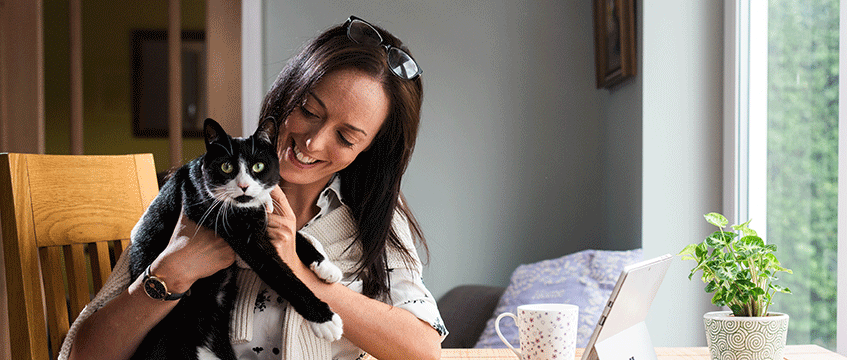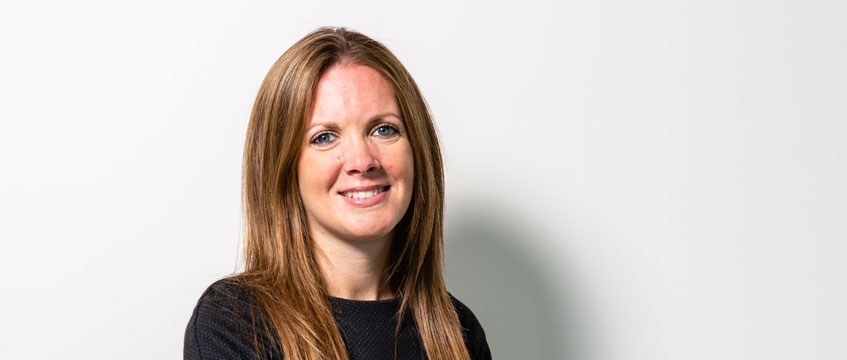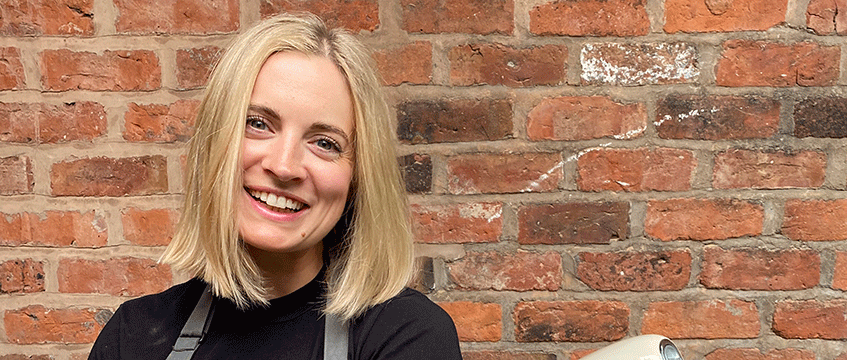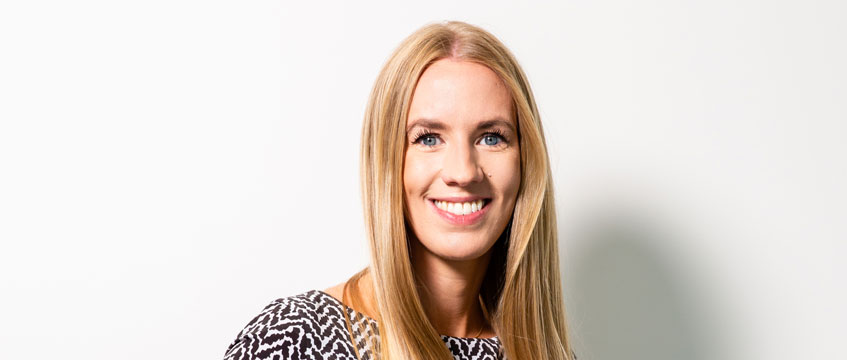Over the past five years, EG has been engaging with and highlighting some of the brightest next big things in the built environment. Through our Rising Stars awards project and Future Leaders training programme we have amassed an alumnus of close to 100 potential new leaders of real estate. After a year like never before, EG asked the next generation three questions about the future of the industry:
- What the outlook for real estate in 2021 and beyond is
- What will be the biggest catalyst for change in the sector
- Who (or what) will be the most influential in real estate in the next five years
Here is what they had to say. A unique look into how to future-proof your business for success.
Maria Hatch, director of Chapter resident experience, Greystar

OUTLOOK
My outlook for the future of real estate is positive. I believe the demand channels will still remain as open as ever. Society has started to look at its quality of life from a different perceptive. Covid not only allowed the opportunity to work from home more but also the opportunity to reassess where to be located in the future. This decision would usually be based around daily work commitments – this is not so much the case anymore.
When we do have residents live with us in London I believe the mindset and future of real state will be based around enhancing the lifestyle of residents. The real estate world will need to fit into the lifestyle and new challenges of our residents.
CATALYST
I think the biggest catalyst for change will be the meeting the demands of the individual consumer. Covid has ensured that we look at the real estate industry in a new way.
The consumer now has a new set of questions, based around safety, security and convenience. As a sector, we need to engage with future residents and consumers on a personal level and consistently create bespoke packages and experiences that enhance not only the comfort of living but also enhance the lifestyle and boost positivity at the same time. Knowing that when people look at a product, they are not just looking for somewhere to live, but also work, create and become successful.
The industry has quickly become much more than the search for a home and much more fitting the appetite for an improved lifestyle choice. The industry has previously tapped into the wellbeing of residents and adding more experiences. This now needs to shift into a seamless process of leasing and living, where the unique selling points will be defined by ease, positivity and healthy living.
MOST INFLUENTIAL
The most useful type of individual to know in real estate now and in five years’ time are the late-teen to young adult group. This group can tell us what they are looking for in the future, as well as what they would be attracted to now.
The industry needs to note the different demographics and backgrounds of our future consumer. This age group allows us to not pin all hopes on what we at the time think is current and focus on what would be perceived as attractive. This particular group of people have influence over society and seemingly have become more conscious of their surroundings – including sustainability, community work and charitable outcomes.
Their forward-thinking minds could help from the architecture of a building through to a resident experience program. Understanding what matters to the future generations is so important, but we need to take the data and information and make them into a reality. The brand that involves the future thinkers in future decisions will in turn be rewarded with success. Allowing consumers to be part of the bigger decisions with bigger companies while impacting their own future homes and others seems to be influential.
Adam Hinds, director, LifeProven Wellbeing Property Consultancy

OUTLOOK
The property industry will change more in the next 10 years than it has over the past 50. Changing consumer lifestyles, demands, net-zero carbon emission laws, autonomous vehicles, climate change and technology advances are transforming how we design, build and operate the built environment. The most successful property businesses and individuals moving forward will be those most able to understand, adapt and capitalise on these future changes.
MOST INFLUENTIAL
Understanding environmental, social and corporate governance funding and strategy will be very powerful as over time it will become the industry standard; whereby future property funding requirements will demand far more than just a traditional financial return.
Additionally, any company or consultancy creating strategies today to seize opportunities from future market changes will be essential for long-term success; one such business we collaborate with for this is Iceni Futures.
Victoria Martin, residential consultancy partner, Cluttons

OUTLOOK
Increased efficiency drives from the proptech disruptors are likely to see a push back from clients who want a more personal touch, so expect to see growing pains from companies who are automating too quickly. The resulting potential contraction of jobs in the industry presents its own challenges for ensuring the property industry has the talent pool it needs, too.
CATALYST
Whether the start-ups and small to medium enterprise companies are able to continue to compete against the global consultancy real estate companies or if the barriers to entry become too great to overcome.
MOST INFLUENTIAL
2020 has taught us more than ever that the real estate industry has to be resilient and adaptable to change. With further impending disruptors such as Brexit, changes in legislation and emerging trends, the performance of the property industry does not rely solely on the success of certain individuals or sections of society but on the ability of all sector participants to work together to achieve a common goal.
Becky Jones, head of partnerships, Appear Here

OUTLOOK
One of the few positives from the pandemic is that it forced a number of much-needed changes in real estate, particularly the huge shift we’ve seen in landlords looking to adopt more flexible leasing models. This was previously something many were resistant to, but now the majority are embracing it and as a result are creating more engaging destinations, future-proofing their sites and maximising value in an unpredictable climate.
I’m excited about the world we’re working towards and believe our business model and the changes we are enabling will be more relevant in the “new normal” than ever before.
CATALYST
2020 made many of us more politically engaged than ever before, with the pandemic, US election, BLM movement and climate crisis all making consumers much more conscious about where they spend their time and money.
I expect – and very much hope – this will translate to our high streets, with more sustainable and ethical stores, and more access given to traditionally underrepresented groups, such as female-led and BAME-led businesses. Ultimately, it is this variety of voices that will make our towns and cities interesting places to live.
MOST INFLUENTIAL
Collectively, independent brands. Lockdowns made us, as consumers, realise how much we need our local high streets and independent stores, not just as places for transactions but as places for human connection and community.
We are now seeing a really wholesome shift back to shopping locally and neighbourhood retail. Customers want to shop and interact with real people, not faceless chains – they’ve realised the value of knowing their local butcher’s name.
Prasanna Kannan, co-founder, Native Finance

OUTLOOK
Covid-19 has turbocharged long-term tech trends and changes we thought might take decades have happened overnight. Beds, sheds and meds might stay the same, but every other asset class needs to reinvent itself and embrace technology.
CATALYST
The genie is out of the bottle and the flexible working revolution unleashed during the pandemic is here to stay. The impact this has on offices, on how often we commute, and where we choose to live will continue to be the biggest catalyst for change going forward.
MOST INFLUENTIAL
Policymakers will be the most powerful and useful to know in real estate over the next five years, as they will mediate the competing interests of bosses, landlords and workers when it comes to offices.
They will also be dealing with the Covid-19 and Brexit fallout, as well as huge headwinds in the form of climate change and a growing yet ageing population. The impact of their decisions – on everything from business rates to social care – will have ramifications for decades to come.
Eva Kiivit, regional operations manager, Greystar

OUTLOOK
There will be a shift in the real estate to an even more purposefully designed and built environment. Whether it is residential or commercial, there will be a conscious shift to the environment and flexibility to allow for businesses and residents to be flexible in their working and living arrangements.
There will definitely be a shift in more remote working and we can already see this in the residential sector, where larger apartments are much more popular as people are spending more time at their homes, which puts emphasis on the quality of the infrastructure (transportation, internet and technology). Having said this, a combination of man-made and nature will hold even more importance to ensure there is enough greenery around us and the buildings blend into the environment both in design and materials.
CATALYST
The change of behaviour and expectations as they have shifted both for businesses and people. Sustainability and thoughtfulness of using resources and more mindful attitude towards wastefulness across several sectors – people, spaces, products and also suppliers – leading multi purposed spaces and local suppliers.
MOST INFLUENTIAL
Anyone who has the ability to adapt to the ever-changing environment sustainably. Businesses that genuinely thrive to make a difference and provide benefit for the environment and consumer – not just their bottom line.
Cal Lee, global head of Workthere, Savills

OUTLOOK
Change is coming and with it a huge opportunity for those ready or already adapting. Over the next decade, sustainability and data will transcend all aspects of real estate and our roles as investors, developers, advisers and occupiers.
Together they will define what the future of real estate looks like and those who don’t adapt will find it more challenging to survive beyond.
We have a duty as an industry to tackle the climate change challenge head-on and it must be core to our strategy – we cannot accept green washing, we must strive to only accept true change that benefits our planet.
CATALYST
Data is going to be king. Data transparency across sectors and markets will become increasingly accessible and open. This will create huge opportunities for disruption in areas that, for a long time, have been able to thrive on the basis of the data they hold.
As data becomes increasingly available to all, service models will change, how we develop will change, how we invest will change and how we occupy space will change. Most importantly, data on the environmental impact of our space and occupation of that space will improve significantly – that alone will be a huge driver of change as expectations adapt as to what is acceptable and what is not.
I think the next decade is hugely exciting for real estate as we transition from a sector of great tradition, to one at the forefront of technological and sustainable evolution.
MOST INFLUENTIAL
A sustainability professional who understands data and can interpret that data to advise on strategy for investors, developers, occupiers or advisers.
Amanda Lim, flexible offices solutions partner, Knight Frank

OUTLOOK
The way we work is in the midst of change. Covid-19 has accelerated trends we were already seeing, including increased flexible working, a focus on employee wellbeing, and improved working initiatives and environments across the board.
In turn, employees will feel empowered to establish a work-life balance that suits them. Parents, particularly mothers, who are often faced with juggling childcare, drop-offs, pick-ups and going into the office, could benefit from this increased flexibility.
With regards to the commercial property market, and how businesses organise their real estate portfolios, we expect to see an increased demand for flexible office space, as businesses value more flexible arrangements amid the current uncertainty.
Monthly rolling contracts, the ability to scale-up or down your space, and the chance to be led by expert providers (with regards to Covid-secure workspaces) make the flex offering all the more appealing. We will also see more businesses adopt a hub-and-spoke model, with one core space and several different project spaces for employees to collaborate in. And, of course, we’ll see a big push towards ESG – sustainability in particular.
CATALYST
Covid-19 has definitely acted as a catalyst in accelerating trends that were already in play – such as flexible working, sustainability and wellbeing. Our ever-growing focus on business balance will also boost diversity and inclusion, as businesses begin to see that a diverse and varied workforce adds immense value.
MOST INFLUENTIAL
I don’t think there’s any one type of individual, but I think you should strive to surround yourself with as many different people from a diverse range of backgrounds as possible. We can only truly innovate and forge new paths when we are open to listening and learning from new perspectives.
Helen Lowe, senior business development manager, BW

OUTLOOK
The future is contingent on the evolution of the virus and ongoing social response. Although there is encouraging news about vaccines and treatments, there is no guarantee of a quick return to the days before Covid was a daily part of our lives.
The medium term, including 2021, will be a navigation through uncertainty. Companies will have to figure out how to provide safe workplaces and build transparency and trust with their workforce. Agility will be key and any investment will be evaluated for reversibility.
If the virus declines, but fails to go into remission, the changes to the economy and real estate are likely to more enduring. If vaccines are genuinely the cavalry riding to the rescue, and the government take the right actions to stabilise the economy, life might return to something like normal more swiftly.
CATALYST
This crisis has accelerated the pace of technological change: more digital, more data-driven, more cloud-based and greater automation. Cyber security will need to race to catch up with the secure environments required to safely accommodate this change.
MOST INFLUENTIAL
What we broadly call the “tech sector” will continue to set the agenda in line with the acceleration of technological change. Look to the key real estate players in those sectors. But you can guarantee that in five years there will be leading tech companies we are yet to hear about, and some of those currently considering leading will have all but disappeared.
Tom McWilliams, development director, Property Alliance Group

OUTLOOK
While the seismic shock that is Covid means the real estate market is experiencing unprecedented circumstances – accelerated structural changes in retail, crisis in the leisure sector and massive uncertainty in the office market, to name but a few – all this change will lead to opportunities. Those businesses and people that are innovative, nimble and quick to adapt will thrive.
CATALYST
It has got to be the worldwide social experiment that was working from home during lockdown. Once the novelty of working from home wore off, many people realised the benefits that come from working in an office. That said, the appetite for increased flexible working, augmented working hours and reduced commuting will have impacts on what sort of space businesses choose to occupy and how we as individuals travel, shop and potentially how and where we choose to live.
MOST INFLUENTIAL
It has got to be Generation Z. This is the generation that will have grown up with BTR, Amazon Prime, Deliveroo and so forth. Their approach to living in and using property is completely different to the generations before them. Understanding and learning from them will be fascinating.
James Morris-Manuel, managing director, EMEA, Matterport

OUTLOOK
We believe the onset of Covid-19 has brought with it a very urgent need for property professionals to work remotely. Where it is not possible to facilitate in-person walkthroughs, those working within the sector require the technology to streamline and simplify the process of back-to-work planning, listing or appraising properties, documenting makeover projects, and more. We feel that those who don’t adapt to the changing landscape of the property sector and the social impact that it has brought with it could be at risk of being left behind, overtaken instead by businesses that can provide the forward-thinking solutions that are so vital to the sector at this time.
CATALYST
Technology and digitalisation will be the biggest catalysts for driving the sector forward and allowing safe interactions and exchanges to take place.
As the effects of the pandemic progressed, so too did the efforts and innovations of tech companies as they quickly responded to a growing demand for data-driven solutions and technology. Matterport is one such company striving to answer this call, as our technology helps to facilitate safe property tours that convey all the details of an in-person walk through.
Outside events such as the 2009 financial crisis and the Covid-19 pandemic have urged businesses to consider how we integrate data and technology solutions into operational practices, enabling the industry to tie in all aspects of property development into one cohesive digital package.
MOST INFLUENTIAL
As we foresee the digitisation of the industry continuing at a rapid rate, we believe the companies equipped to provide this platform will be the most useful to know over the next five years. However, that does not mean that we subscribe to the notion that existing property professionals will become obsolete: rather, we feel they will greatly benefit from adopting these emerging technologies to continue to offer their services and industry insights remotely. In this sense, we believe that science and forward-thinking technology clients will be instrumental in leading the industry forward.
To send feedback, e-mail samantha.mcclary@egi.co.uk or tweet @samanthamcclary or @estatesgazette











